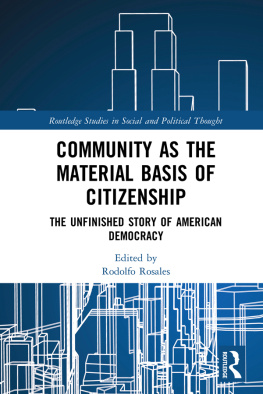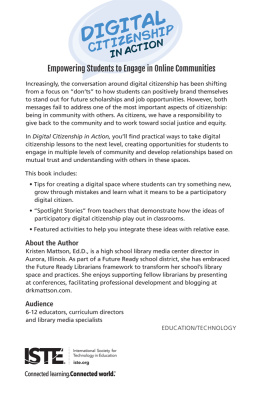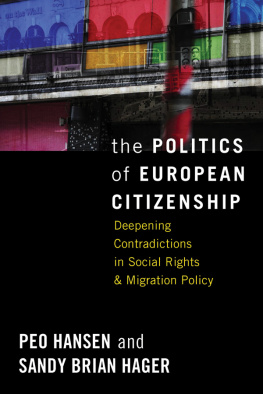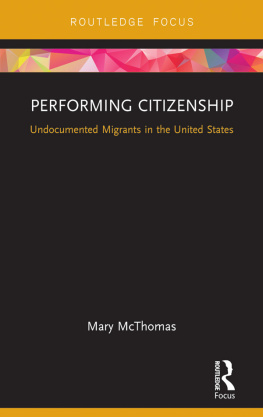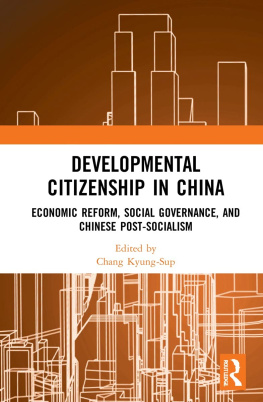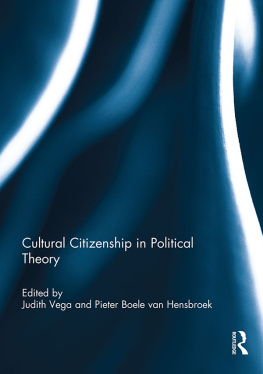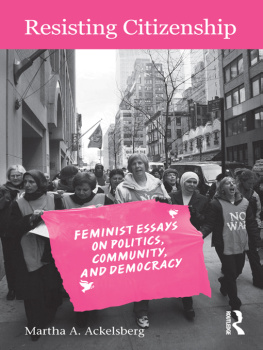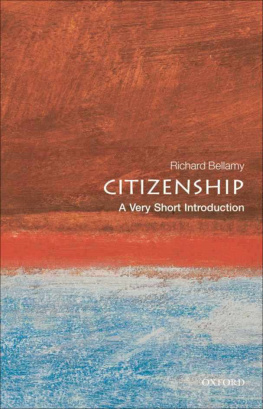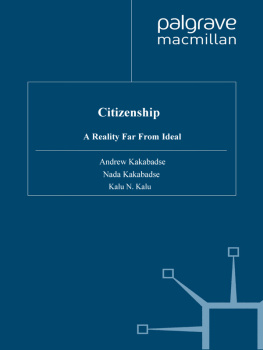First published 2018
by Routledge
711 Third Avenue, New York, NY 10017
and by Routledge
2 Park Square, Milton Park, Abingdon, Oxon, OX14 4RN
Routledge is an imprint of the Taylor & Francis Group, an informa business
2018 Taylor & Francis
The right of Rodolfo Rosales to be identified as the author of the editorial material, and of the authors for their individual chapters, has been asserted in accordance with sections 77 and 78 of the Copyright, Designs and Patents Act 1988.
All rights reserved. No part of this book may be reprinted or reproduced or utilised in any form or by any electronic, mechanical, or other means, now known or hereafter invented, including photocopying and recording, or in any information storage or retrieval system, without permission in writing from the publishers.
Trademark notice : Product or corporate names may be trademarks or registered trademarks, and are used only for identification and explanation without intent to infringe.
Library of Congress Cataloging-in-Publication Data
A catalog record for this book has been requested
ISBN: 978-1-138-08093-5 (hbk)
ISBN: 978-1-315-11315-9 (ebk)
Typeset in Times New Roman
by Apex CoVantage, LLC

Dear Reader
My anticipation is that students, faculty, researchers, and activists who are moved profoundly by the politics that we face today will read this volume. It is quite obvious that the national leadership in place today is not interested in the communities that are now out in the streets protesting a politics that seems so far away from our reality. The upside to that is that communities are coming face to face with the knowledge that protest is not enough. It is the beginning of an awakening of communities that had put to sleep any dreams of political justice. This is what the authors in this volume have to offer: an analysis of a political reality that ties many communities together and that is the struggle for access to the American democratic process. Today these same community people represent the spirit of an American political process that seeks to bring about social justice for not only those who already enjoy that privilege but those who are left out.
Each chapter tells a different story about the many ways communities are dealing with a politics of exclusion that has lasted so long that it has almost been normalized. Well, it hasnt, and these chapters add to that picture where people stand up and speak up for their rights. More important, this era of politicsthe elections of 2016 and the ushering in of an almost absolute control of our representative institutionshas brought people out and enabled them to look and recognize each other as democrats with a little d.
Hopefully these chapters provide insights into what has to be done and what has already been done.
Rodolfo Rosales, Editor
Marisol Cortez , Ph.D. works on environmental and social justice issues as a scholar, community organizer, and creative writer. After graduating in 2009 with her Ph.D. in Cultural Studies from the University of California at Davis, she organized with the Southwest Workers Union around local climate and energy issues. She has also worked at Esperanza Peace and Justice Center as the coordinator of the Puentes de Poder community school program, developing popular education programming to support local social justice organizing efforts. Dr. Cortez writes and organizes around issues of environmental justice, on land use politics and gentrification struggles, as well as cooperative alternatives to conventional forms of urban development. Dr. Cortezs publications include Occupy Los Intersticios! Or, In Defense of Carbon-Free Unicorns. Accepted for publication in joint issue of Cultural Logic/Works and Days , Winter 2015; Alkon, Alison, Marisol Cortez, and Julie Sze. What is in a Name? Language, Framing, and Environmental Justice Activism in Californias Central Valley. Local Environment: The International Journal of Justice and Sustainability , August 2013.
Kim Geron began teaching at California State University East Bay in Fall Quarter, 1999. Dr. Geron is the lead faculty member for the Public Affairs and Administration Option for the Political Science major. He received a B.A. in Labor Studies in 1992 and a Ph.D. in Political Science in 1998. He is the author of Latino Political Power , 2005. Dr. Geron is currently conducting research on the Asian American Movement, Latino politics, race and labor politics, and community based urban politics. His most current publications include (with Michael Liu in 2010) Against the Tide: Mobilization and Community Planning in Asian Ethnic Enclaves, Contentious Sites between Capital and Community, Urban Spaces: Planning and Struggles for Land and Community . Edited by J. Jennings and J. S. Jordan-Zachery; and with co-authors, Michael Liu and Tracy Lai. 2008. The Snake Dance of Asian American Activism: Community, Vision, and Power . Lanham, MD: Lexington Books.
Joy A. James received her B.A. from St. Marys University in San Antonio and her Ph.D. from Fordham University in political philosophy, where she wrote her dissertation on Hannah Arendts Concept of Power as Communication: A Feminist Critique. She also holds a postdoctorate M.A. from Union Theological Seminary in the City of New York in systematic theology. In September of 2005, Williams College appointed Dr. James as the John B. and John T. McCoy Presidential Professor of Africana Studies and college professor in political science. Her work focuses on political and feminist theory, critical race theory, and incarceration. She has received research grants from the Rockefeller Foundation, the Ford Foundation, the Schomburg Center for Research in Black Culture (NY Public Library), and the Rockefeller Bellagio Center (Italy). Dr. James is the author of a number of books, including Transcending the Talented Tenth and Shadowboxing: Representations of Black Feminist Politics and forthcoming Memory, Shame & Rage: The Central Park Case, 19892002, which analyzes the convictions and exoneration of youths in the Central Park Case.
Danvy Le is an assistant professor in the Department of Political Science at California State University, East Bay. Her research interests include race and ethnic politics, civic engagement, and political behavior. She is particularly interested in how social context influences political behavior. She has done extensive work in the Vietnamese American community to explore the effects of social and physical environment on politics and identity.
Deron Marquez is a nationally-recognized speaker and lecturer on economic development, tribal governance and tribal sovereignty. He earned his undergraduate degree from the University of Arizona, a Masters degree in Politics and a Ph.D. in community health, politics and public policy from Claremont Graduate University. Marquez served as chairman of the San Manuel Band of Mission Indians from 1999 through April 2006. Under his leadership, the Tribe has enhanced its governance capabilities, instituted public services for tribal citizens and solidified intergovernmental relations at the local, state and national levels. The Tribe has also entered into successful business ventures with the goal of securing critical government revenues well into the future.
Louis Mendoza received his doctorate in English with a concentration in ethnic and Third World literatures from the University of Texas at Austin. He is currently professor of literary and cultural studies and director of the School of Humanities, Arts, and Cultural Studies at Arizona State University. He has taught at the University of Minnesota as professor of Chicano and Latino studies for the past decade, and served as associate vice provost in the Office for Equity and Diversity from 20082014. Dr. Mendoza also taught in the Department of English at the University of Texas at San Antonio, where he was an associate dean in the College of Liberal and Fine Arts and interim director of the Hispanic Research Center. His research interests include Chicana/o literary and cultural studies, U.S. immigration literature, prison literature and oral histories. The author and editor of six books and numerous articles, in 2012 Mendoza published two books with the University of Texas Press based on his 2007 Journey Across Our America research project on immigration and the Latinoization of the United States.

